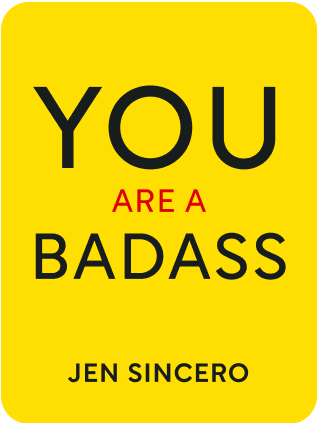

This article is an excerpt from the Shortform book guide to "You Are A Badass" by Jen Sincero. Shortform has the world's best summaries and analyses of books you should be reading.
Like this article? Sign up for a free trial here .
Do you want to stop projecting insecurities on to other people? How can our projections say more about ourselves than others?
When we are annoyed by someone, we’re projecting insecurities onto them. We are seeing something in them that we hate about ourselves, or their behavior triggers a fear or insecurity we may not even know we have. These are good times to look inward and see what we can improve.
Keep reading about how when you’re projecting insecurities, it can be a good opportunity to learn about yourself.
Projecting Insecurities on Others
The people you surround yourself with act as mirrors onto whom you’re projecting insecurities and your own faults.
We are both attracted to and annoyed by qualities other people possess. When we are annoyed by them, we’re projecting insecurities onto them regarding something we hate about ourselves, or their behavior triggers a fear or insecurity we may not even know we have.
When we think they’re great, we’re projecting something we like about ourselves (even if we haven’t quite developed it yet). If you actively don’t like something about someone else, it means it resonates with you on some level; it has some kind of meaning for you.
The people you surround yourself with act as mirrors for who you are and how much — or little — you love yourself. Your reality is created by what you focus on and how you interpret it — this goes for people too. What you focus on about other people is part of the reality you are creating.
Irritating People Are Mirrors
Dealing with irritating people is an opportunity to learn something about yourself, gain insights and grow. This information is even more valuable than what you learn from the people who love you.
When you’re interacting with irritating people, figuring if you’re projecting insecurities that can help you heal, grow, and stop playing the victim. You’ll be forced to deal with aspects of your own personality that aren’t so pretty. Admitting you possess these less-than-stellar qualities — being mean, or lazy, or insecure — is the first step to letting them go.
For example, you know a person who is a true know-it-all. Anytime anyone shares some knowledge or an anecdote, this person knows more and can upstage and out-talk anyone else on the subject. This person drives you absolutely nuts. If their behavior resonates with you, this is a clue that you should dig deeper and find out why it annoys you so much. Do you secretly fear you are a know-it-all? Or do you harbor secret insecurities that other people think you don’t know anything?
If other people are annoying in a way that doesn’t truly resonate with us, we either don’t notice it or don’t get too worked up about it. For example, if you’re 6 feet tall and someone calls you “shorty,” that’s not going to resonate with you. But if they tease you about being bossy, and deep down you always feared you were bossy, this would get under your skin.
Loving Yourself Enough to Stand Up for Yourself
If you’re focused on certain beliefs about who you are, you will attract people who mirror those traits. This is why, when you’re dealing with a toxic person in your life that you should banish, you may have a hard time letting go, finding excuses like, “They’re great deep down.” Maybe you’re afraid to hurt their feelings.
If you banish this toxic person, you’re faced with rewiring your limited beliefs about yourself. But as long as you make excuses for this person, you are avoiding facing your own issues about standing up for yourself.
When you let other people treat you badly, you’re saying that you are unwilling to make someone else more uncomfortable than they just made you. But when you stand up for yourself and decline to participate in a toxic person’s drama, you are standing up for your highest self, even if the other person ends up disappointed or inconvenienced, or thinks you’re crazy. You are respecting yourself instead of feeding your insecure need to be liked.
There are multiple benefits when you find the strength to stand up for yourself. You start attracting the people and opportunities in alignment with who you are instead of toxic people who suck your energy. You raise your own frequency when you stand up for yourself — and potentially help the other person raise their frequency, as well.
Tips on How To Stop Projecting Insecurities and Judgements
When you stop projecting insecurities and negative qualities, you are free to become your highest self. Here’s how to start:
Own your own faults. Notice what’s driving you nuts about other people. Use them as a mirror — is this a quality you have? Does something about their behavior remind you of something you do? Does it remind you of something you’re trying to avoid or suppress?
Dig deeper. Once you’ve identified what part of yourself you’re projecting onto the other person who is irritating you, you can start to let it go. For example, if other people being late bothers you, ask yourself, “In what ways am I late/inconsiderate/unreliable?” Or perhaps, “Am I too rigid or controlling?”
Then ask yourself, how can this situation not bother me? For example, say you’ve come to the realization that you’re a little rigid. To be happier, you may need to loosen up and stop demanding people do things exactly as you do. Let it go. When we’re aware of what we do, we can investigate why — and then choose to keep or lose the behavior instead of blindly reacting through habit.
Understand what you’re getting out of the situation. We don’t do anything unless we’re getting something out of it. In our rigidity example, the benefits of being so rigid may be you’re always on time and productive. But there are negative advantages, such as intimidating others and being in control. When you dissect and get rid of the false rewards this behavior gives you, you can release it.
Ask yourself how it would feel if you changed the behavior. Imagine yourself as the person you’d be if you let this behavior go. How do you feel? Understand what it would be like not to live this way, and then release the behavior.
Don’t be an enabler. What if you really want to help someone instead of inviting them out of your life? It’s important to understand the difference between helping and enabling. Are you lifting them up or are they pulling you down? Are they grateful or entitled? If you’re constantly bailing someone out, they’ll never discover how to save themselves.
Get rid of toxic people. Sometimes no matter how much work you do on yourself, someone else is too dysfunctional and toxic to have around. Along with learning how to grow from the irritating behavior of others, there are times you’ll need to just get away from someone who is chronically self-obsessed, or violent, or negative, or otherwise toxic. But this can be hard because you may love this person and guilt can get in the way.
First, see it as being nice to yourself instead of being mean to them. Secondly, cut the cord as quickly and simply as possible, with little to no discussion. Don’t get sucked into explaining your decision or dealing with their problems. Simply say the relationship isn’t working for you, you don’t like how it makes you feel, and it’s not open for discussion.

———End of Preview———
Like what you just read? Read the rest of the world's best book summary and analysis of Jen Sincero's "You Are A Badass" at Shortform .
Here's what you'll find in our full You Are A Badass summary :
- How to go from wanting to change your life to deciding to do it
- How to stop your self-sabotaging thoughts
- How to tap into Source Energy for mental and spiritual strength







Can you recommend any books on this topic?
Hi Jacqueline,
Other than You Are A Badass, I would recommend The Power of Vulnerability, The Six Pillars of Self-Esteem, and The Gifts of Imperfection as good books that discuss this topic. Hope this helps!